| Having been around for about a decade, Game Revolution has seen a lot of years. Ten of them, in fact. We’re pretty familiar with the way years work – they last roughly 365 days, span approximately 12 months, and are comprised of all sorts of smaller units like hours, minutes, seconds, moments, instances and, of course, pwnages.
And, without fail, they are filled with video games. But let’s be frank – 2005 doesn’t come around often. A year like this one, a year only five ticks past the turn of the millennium, well, that sure seems like an unusual year. It might even be unique, if you believe what it says on the collectible trading card. So since we’re such experts on the subject, we figured it was well within our professional bounds to apply our critical minds and whimsical pens to the breakdown, discussion and subsequent analysis of the past year. Fact? Opinion? History? Call it what you want, but don’t argue with the pros. We can review anything.
The Plots Thicken When it comes to story, 2005 absolutely, unequivocally delivered. This was certainly the most controversial year for video games ever, and the timing is no coincidence. It all started with last year’s version of this year, 2004. In the midst of a Halo 2 media frenzy, it was announced that video games had actually surpassed Hollywood’s box-office in earnings, and nothing attracts circling sharks faster than the scent of money. 2005 marks the year that, in public perception, video games changed from fringe entertainment for nerds to big business for bloodsuckers. Suddenly, gaming was considered an acceptable cocktail party conversation topic. Where we were once shunned as social misfits, our jobs immediately became interesting as everyone wanted to ask us about ‘the Grand Auto Theft for Nintendo.’ People who didn’t know anything at all about video games suddenly had opinions and were more than happy to share them with the world. Apparently, either video games were the next evolution of human innovation, or they were the fourth sign of the apocalypse. Vocal activists turned up on CNN to link video games to any crime that happened within 50 meters of a Playstation. Politicians, sensing a possible bandwagon, forgot all about that war in that desert country and pushed each other out of the way to jump on board. Speech after speech, made by people completely ignorant of the facts, bemoaned the fate of our children being poisoned by filthy video games. In 2005 nearly every state put forward some sort of anti-video game legislation. We have to give a big thumbs-up to the courts, however, for protecting our cherished freedoms. Censorship, they reminded the country, is one of those things they do in shady foreign places where people disappear for criticizing the President-For-Life. With nary a hesitation, the courts have shot down every single one of these laws as unconstitutional. And by the way, did we mention you Justices looked damn fine in those robes? But no firebrand waved his flaming, uh, brand, with as much vigor as Florida attorney turned egomaniacal lunatic, Jack Thompson. Testifying before government committees, appearing on any TV show that would let him talk, issuing countless press releases and open letters, and suing anything that moved, Jack had a very busy 2005. He even tried to have us arrested. Fortunately, Jack is so crazy, he pretty much negates his own effect; his behavior even got him tossed off his own Strickland vs. Sony lawsuit by the judge and led to his temporary Alabama law license being revoked (did we mention you judges totally rule?). Even other anti-video game groups tried to distance themselves from his antics. It’s a shame that there’s a Jack Thompson out there, but honestly, we’re glad that it’s him. Back in the surreal world, Roger Ebert started an Internet flame war with gamers by declaring on his website that video games were not, and never could be, art. Considering that the debate over the definition of art has raged (in a quiet, academic sort of raging) for thousands of years, I doubt the issue will be settled in Mr. Ebert’s chatroom. OMFG ebart iz teh suxxorz111, followed by opinions of artistic merit from the guy who gave Space Jam a thumbs-up. Speaking of which, 2005 also marked gaming as the latest hip thing in filmmaking. The hype that surrounded the Doom flop-o-matic was unbearable (not to mentioning watching that crap), but that hasn’t stopped movie studios from snorting up game licenses like the party favors at a Viper Room VIP party. The ideas range from the bad to the obvious to the inexplicable. Dungeon Siege: The Movie is in production now, and Microsoft sold the Halo movie rights for presumably a bazillion bucks. But it’s just getting silly when MTV Films buys the movie rights to Mark Ecko’s Getting Up: Contents Under Pressure before the game is even out. You know what these films won’t be? Art. But all this nonsense just made for a more newsworthy year than we can remember. The plots were awesome, complex, far-reaching and substantial, the players famous and preposterous and the fallout simply delicious. What 2005 lacked in poise in made up for in sheer drama – you won’t find a better year anywhere. |
|
We’re quite fond of turning the phrase "It’s all about the games!" but in truth, we froth at the mouth just like any geek worth his glasses at the promise of new, expensive gadgetry. After all, new consoles mean new ways to play that all-important software. At least they used to. 2005 took some big steps towards changing the way we play, even if it didn’t go the full monty. Three new systems hit shelves: one offered incredible new ways to play old games, another delivered new ways to do anything but play games, and the last allowed us to play the same old titles that other, less metrosexual handhelds have been playing for years. The year’s main mode came courtesy of Microsoft, although some were fooled by their fake, $300 Quick Play version. Despite the ruse, the Xbox 360 marked a significant new way to engage your favorite pastime – even if the coolest things about the system aren’t games at all. Microsoft also listened to GR and literally cut the proverbial cord. After a night of drunken button-mashing between the Xbox Controller S and the Sony Dualshock, the Xbox 360 controller was born, looking just like its proud parents. Given Sony’s upcoming boomerang and Nintendo’s television remote, a controller we can wrap our heads and hands around is pretty refreshing stuff. Plus, no cord means more freedom, so when your first-generation 360’s AC adaptor explodes like a hand grenade, sending you into a towering rage, you’ll be able to fastball that sucker without a pesky cord to crimp your Nolan Ryan style. 2005 saw the resurgence of last year’s holiday must-have, the Nintendo DS, which went from last to blast in a matter of months. The DS also went online with Mario Kart and Animal Crossing – which matched up nicely against the PSP’s SOCOM – but where are our RPGs, guys? Why aren’t there persistent worlds in our pockets? Because, silly, our pockets are filled with style! Yet another Game Boy Advance launched this year – the Game Boy Micro, just what we needed not to need. Intended for girls and accessory-conscious scenesters with gaming habits – so really just girls – the Micro is further proof that the industry longs for the female touch just as much as you do. The year deserves some major props, though, for even having the cajones to pump out a couple new systems. In this age of delays, it’s nice to see some hardware make their deadlines, so we salute this past year’s ability to get the job done. Mission Accomplished! |
|
A year’s success is ultimately defined by its gameplay, and in the case of 2005, there was, um, a lot of it. Some of it could even be categorized as good, fun, maybe even innovative – if you stretch the meaning of the word to include non-innovative things. God of War would be a prime example of one such version of innovative. No, it’s not a fresh idea, and no, the gameplay isn’t brand new, but when you take down a giant Hydra using flaming sword-whips in an act of divine defiance, butchering naysayers like heathen pigs and challenging the authority of the gods themselves, you get something so blasphemously good, you might as well call it innovative. Actually, some of the freshest material came from the oldest systems. The PS2 went artsy with the riveting Shadow of the Colossus and rocked the peripheral race with the finely tuned Guitar Hero. Meanwhile, the Xbox shot us with an old-school mind bullet called Psychonauts and invigorated our chi with Jade Empire. And yeah, we still love katamari. Perhaps strangest of all was the apparent end to one of the most dependable mainstays in video game reviewing: the curse of the movie license. We’re hardwired to expect these games to suck, but then we’re blindsided by the likes of The Warriors and Peter Jackson’s King Kong. Has the curse been banished for good? Not if The Fantastic Four have anything to say about it. Call us cautiously optimistic. So 2005’s gameplay had merit: a generally solid feel throughout. But for the most part, you’ve played this year before – as in last year, and probably the year before that. The sequel/port epidemic hit 2005 harder than the bird flu, spreading its wings and coughing up phlegm all over the industry. It’s not that sequels are bad; it’s that by their nature, they merely tweak old experiences rather than offer brand new ones. Unfortunately, the purchasing decisions of consumers have proven to publishers that sequels sell, and 2005 was littered with ’em. And it only gets more confusing. The top three game publishers – EA, Ubisoft, and Activision – did their part to ensure that you spent this year playing the same games you played last year. The latter cranked out new versions of Tony Hawk, True Crime, X-Men Legends, Spider-Man and Quake, while Ubi played it safe with more Splinter Cell, Prince of Persia, MYST, Far Cry, and even Bomberman, not to mention Brothers in Arms, which saw both an original game AND a sequel in a seven-month span. Now that’s forward thinking. Of course, nothing compares to EA’s port parade, which alone accounted for no less than 20 sequels/ports, many of them merely piling a few new features on top of a 2004 engine. Or worse, stripping features entirely. We watched in horror as the Xbox 360 launched with outrageous hype only to be supported by a resounding 12 ports’out of 18 games. It had its moments, but for a $400 rig and games priced at $60, we expect more than rehashed versions of older games. Apparently the next-generation looks just like this one, but with better graphics. Or not. The most telling truth about 2005’s lack of originality can be found in the virtual pages of our game reviews. How many times did we write the line, "If you’re unfamiliar with the basics of (insert name here), go read our review of (insert name here) 2004." Four thousand times. While we’re usually content taking such a handy review shortcut, we feel empty in the morning when the guilt sets in. Despite 2005’s mostly solid gameplay, there’s still a nagging hole in our gamer gut. Will 2005 be the last year in which we see such a deluge of decent but unimaginative games? Will consumers be forced to pay higher prices for slightly tweaked versions of yesteryear’s dreams? Will innovation come in the form of daring new gameplay concepts rather than just beefier graphics? Will we ever stop playing World of Warcraft?!? Guess we�ll just have to wait for 2005’s sequel before we get any answers. |
|
Everyone likes to downplay the importance of looks in favor of personality, but when a non-talent like Paris Hilton is wildly rich and famous, we beg to differ. Sad truth or fact of life, looks mean a lot, and any gamer who tells you otherwise is an admirable filthy liar. But unlike our youth-obsessed culture, 2005’s prettiest faces came equally from its peppy upstarts and its aging stars. Though going big was all the rage, we watched with astonishment as visually stunning current-gen titles went about hamstringing the crystal clear giants like so many dead pixels. The Sony PSP costs considerably less than a PC or 360, but is still twice the price of the Nintendo DS – a system that has lately been outstripping Sony’s viewtiful gizmo with several compelling games, none of which look too shabby. But when it comes to the handy bang-for-buck ratio, 2005 didn’t get any fairer than the startling number of pretty current-gen games. The brightest, shiniest stars of the current generation all came out in 2005, including God of War, Shadow of the Colossus, Resident Evil 4, Far Cry: Instincts, Peter Jackson’s King Kong, Splinter Cell: Chaos Theory and dozens of others that pushed their generation’s graphical envelopes to new and wonderful levels of visual sweetness. Horsepower means little next to programming familiarity, it seems. Console and handheld graphical bars were undoubtedly raised this year, and took the prices along with them. If you have a ton of money or are willing to mortgage your house, you too can bask in the ethereal glory of the year’s alien screens. But if you don’t, you can still enjoy the sexiest, most cinematic games yet on your current-gen consoles. Here’s lookin’ at you, PS2.
Clearly, 2005 was another big year for gaming, but considering how much happened, very little actually changed. We’re hoping for improvements in next year’s version of this year, perhaps with more creative games and some serious next-gen competition. The coffee, though, probably can’t get any hotter, Jack Thompson can’t get any lamer, the sequels can’t get any more sequential and the industry probably won’t get any smaller. Those obsessed with owning every year out there shouldn’t be afraid to plunk down cash for 2005, but we can’t deny the wisdom in saving for ’06.
|

 Serious money was out there to be made or lost, and nothing drove that point home more clearly than EA’s 5-year lockup of the NFL. It was a brutal kick in the jimmy for Sega, Sony and 2K Sports, the biggest licensing deal in video game history.
Serious money was out there to be made or lost, and nothing drove that point home more clearly than EA’s 5-year lockup of the NFL. It was a brutal kick in the jimmy for Sega, Sony and 2K Sports, the biggest licensing deal in video game history. 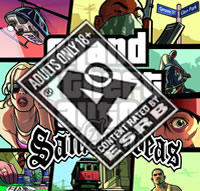 Until you started sipping coffee, that is. Some lonely hacker found disabled code for sex scenes in
Until you started sipping coffee, that is. Some lonely hacker found disabled code for sex scenes in  The advent of the micro-purchasing system on Xbox Live! for the 360 was important and impressive, even if currently this feature simply means your girlfriend can clean out your credit line faster than ever by purchasing bad arcade games and cutesy image packs for her gamer card. But we bet our right and left thumbs you’ll be joining her in micro-purchase mania before you can say "card declined." There’s no telling what will be for sale in the future through this portal to financial insolvency (cheats, full games, movies, collectibles, the Nintendo corporation), just that the thing is open for business and so easy to use it’s scary. It won’t change how you play, just how you pay.
The advent of the micro-purchasing system on Xbox Live! for the 360 was important and impressive, even if currently this feature simply means your girlfriend can clean out your credit line faster than ever by purchasing bad arcade games and cutesy image packs for her gamer card. But we bet our right and left thumbs you’ll be joining her in micro-purchase mania before you can say "card declined." There’s no telling what will be for sale in the future through this portal to financial insolvency (cheats, full games, movies, collectibles, the Nintendo corporation), just that the thing is open for business and so easy to use it’s scary. It won’t change how you play, just how you pay. 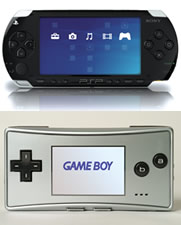 Alternately, you can toss your Sony movie player. Before it came out, the PSP was all about the screen. Well, it’s been out for nine months and it’s still all about the screen. Other than a
Alternately, you can toss your Sony movie player. Before it came out, the PSP was all about the screen. Well, it’s been out for nine months and it’s still all about the screen. Other than a 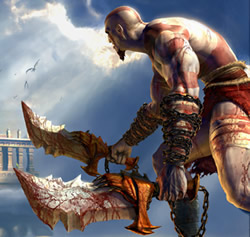 Thank Ares it wasn’t alone in its greatness. We saw some spillover from last year as
Thank Ares it wasn’t alone in its greatness. We saw some spillover from last year as 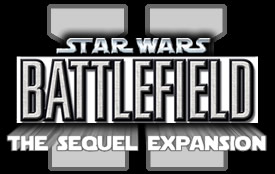 For instance, we present the Battlefieldfront Conundrum�. First came 2002’s
For instance, we present the Battlefieldfront Conundrum�. First came 2002’s 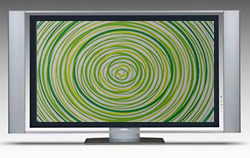 We’re talking about the Xbox 360, of course, and its HDTV support. Indeed, the few who dropped roughly two grand to buy the rig, the TV and the games enjoyed some absolutely gorgeous games. The PC sports graphics to rival the 360’s in games like
We’re talking about the Xbox 360, of course, and its HDTV support. Indeed, the few who dropped roughly two grand to buy the rig, the TV and the games enjoyed some absolutely gorgeous games. The PC sports graphics to rival the 360’s in games like 






